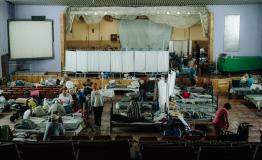
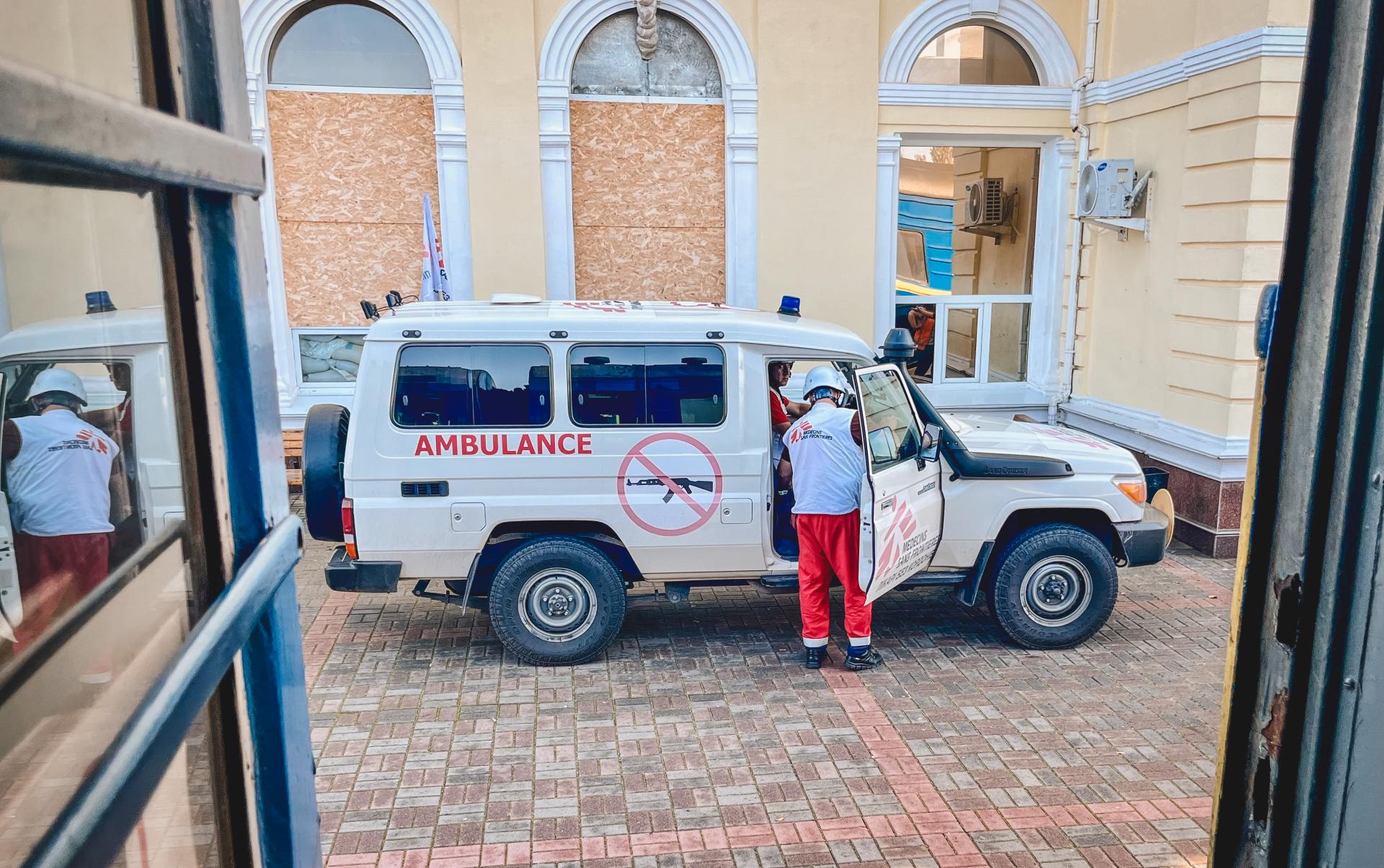
Ukraine
As full-scale war erupted in Ukraine, Médecins Sans Frontières (MSF) scaled up activities to meet the many health needs, supporting health facilities, running mobile clinics and operating a specially designed medical train.
After eight years of low-intensity conflict in eastern Ukraine, Russian forces launched an all-out military assault on 24 February 2022, causing thousands of civilian casualties and extensive damage to energy and other key infrastructure, particularly in the country’s east, southeast and northeast. Many homes were destroyed, and public services, including healthcare, water and power supplies, were severely disrupted.
By the end of 2022, 6.5 million people were internally displaced within Ukraine, and about eight million had fled abroad.
Our activities in Ukraine in 2022
International Activity Report 2022

90,800
90,8
13,600
13,6
2,560
2,56

War in Ukraine
Article
2 Oct 2025
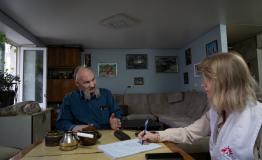
War in Ukraine
Not all wounds bleed: MSF reports surge in post-traumatic stress disorder in Ukraine
Article
6 Jun 2025
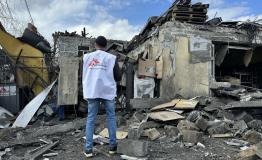
Attacks on medical care
MSF Condemns Missile Attack that Destroyed its Office in Donetsk Region
Article
5 Apr 2024

Mental Health
Beyond the Frontlines: A Journey into Mental Health Healing in Ukraine
Stories from the Frontline
2 Feb 2024
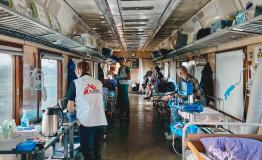
Attacks on medical care
MSF evacuates 150 patients due to repeated attacks on hospitals in Kherson
Article
31 Oct 2023
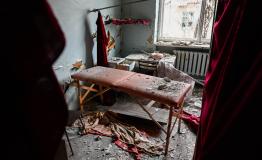
War in Ukraine
Ukraine: The destruction of medical structures impedes access to health care
Press Release
28 Mar 2023